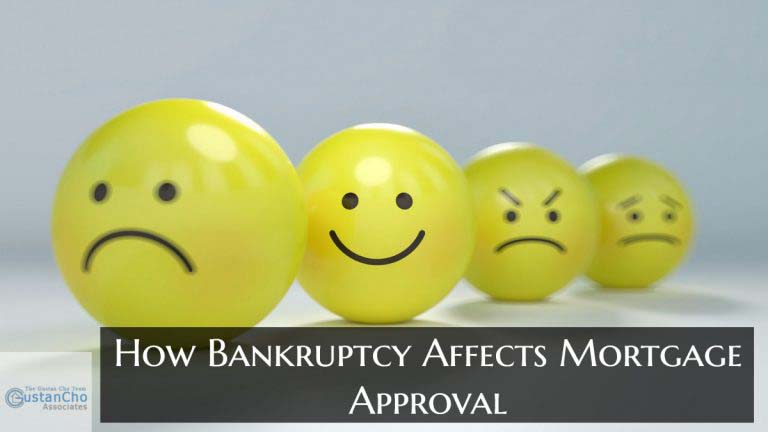Mortgage with High DTI: Your Guide to Home Loans in 2024
In 2024, the world of home loans is changing. Lenders are looking at various factors, and this makes it even more important for someone like you to stay informed about your options. If your DTI is on the higher side, you might be wondering what that means for your chances of getting a mortgage. The good news is that with a bit of thoughtful preparation and the proper support, you can easily navigate the challenges ahead.
Understanding your DTI is the first step. Consider it a straightforward equation that evaluates the relationship between your monthly debt obligations and income. If your DTI is high, it may feel like you’re facing a bigger hurdle, but many lenders are willing to work with you if they see that you have a steady income and a good credit history. They recognize that everyone’s financial situation is unique.
So, whether you’re a first-time buyer or looking to move into a new home, know that qualifying for a mortgage with high DTI doesn’t have to be out of reach. In this article, we will discuss everything you need to know about getting a mortgage with high DTI.
What is DTI?
Debt-to-income ratio, often shortened to DTI, is an important number that helps lenders understand your financial situation. It looks at how much money you owe each month compared to how much money you make before taxes.
To figure out your DTI, take all your monthly debt payments—like credit cards, car loans, and student loans—and add them up. To find the percentage, divide that total by your gross monthly income, representing your earnings before any deductions are taken out. This gives you a percentage that reflects how much of your income is already taken up by your debts.
For example, if you have a monthly income of $4,000 and your total monthly debt payments add up to $1,200, your DTI would be 30%. Lenders pay close attention to this number because it helps them decide if they want to lend you money, especially when you are looking to get a mortgage with high DTI. A higher DTI can indicate that you may have trouble taking on more debt, which makes lenders cautious about approving your mortgage application. So, keeping your DTI in a healthy range can be a smart move for your financial future!
Why High DTI Makes Mortgage Approval Challenging
A high DTI often alarms lenders because it indicates that a significant portion of your income is already dedicated to debt, potentially making it harder to manage additional loan obligations like a mortgage. Traditionally, many lenders set caps on DTI, often around 43% to 45%, beyond which they become hesitant to lend.
Despite perfect credit scores, a high DTI can be a roadblock. But don’t worry—there are ways around this hurdle.
Start Your Process Towards Buying A Home
Apply Online And Get recommendations From Loan Experts
Navigating Mortgage with High DTI in 2024
Lender Overlays vs. Federal Guidelines
Understanding the difference between lender overlays and federal mortgage guidelines is key. While federal rules might allow a DTI as high as 56.9% on certain loans, individual lenders often impose stricter limits, known as overlays.
At Gustan Cho Associates, we pride ourselves on offering no overlays on government and conforming loans. This means that as long as you meet the federal minimum DTI requirements, we won’t add stricter rules. This approach opens doors for many borrowers who’ve faced rejections elsewhere due to high DTI.
Just because borrowers do not qualify for a home loan with a particular lender due to their overlays on debt to income ratios does not mean that they do not qualify with a mortgage company with no overlays like myself.
- We are lenders with no overlays
- As long as borrowers meet the federal minimum lending guidelines on debt to income ratios, we will not impose any other overlays
- We can approve a mortgage with high DTI as long as the borrower gets an approve/eligible per Automated Underwriting System
- A large percentage of our mortgage applicants have high debt to income ratios and were told that they do not qualify for a home loan due to overlays
Borrowers seeking a mortgage with high DTI, please contact Gustan Cho Associates at 800-900-8569 or text us for faster response. We are available 7 days a week, evenings, weekends, and holidays.
Loan Options Favorable to High DTI in 2024
FHA Loans
FHA loans are good options for people who have a high debt-to-income ratio. These loans are known for being more forgiving than some other types of mortgages. For example, if your credit score is 620 or higher, you can have up to 46.9% of your income going toward your housing costs, called the front-end ratio. Even better, the back-end ratio—including all your monthly debt payments—can increase to 56.9%.
If your credit score is lower, there’s no need to be overly concerned. You may still be able to qualify because FHA loans can adjust the DTI limits based on your situation. This means that even if your credit isn’t perfect, you could still get a mortgage with a high DTI. FHA loans offer flexibility that can help many borrowers find a path to homeownership, even if their financial circumstances aren’t ideal.
VA Loans
If you’re a veteran considering buying a home, you should check out VA loans. They come with some great benefits that can make the whole process easier. One of the best things about VA loans is that they don’t count deferred student loans on hold for over 12 months when calculating your debt-to-income (DTI) ratio. This is helpful because a lower DTI can increase your chances of getting approved for your mortgage.
Also, if you have student loans you’re paying off, the full monthly payments will be factored in, which might help lower your DTI even more. This can be a big advantage for veterans who worry about how their student loan payments might affect their ability to get a mortgage with high DTI. Overall, VA loans provide unique benefits that can make homeownership much more accessible!
USDA and Conventional Loans
When looking for a mortgage with high DTI, you’ll find that different loans have different rules about how much of your income can go towards debt. USDA and Conventional loans are flexible, allowing for a debt-to-income ratio (DTI) that can go up to 50% in certain situations. If you’re juggling other debts, such as student loans or credit cards, you might be pleasantly surprised to find you can still qualify for a mortgage. This process can be easier than you think!
Tips for Buying a House with High DTI
- Co-borrowers Can Help: Including a co-borrower who has a stronger financial profile can help offset your high debt-to-income (DTI) ratio. This strategy makes you more appealing to lenders and may improve your chances of securing a loan.
- Clearing Debt and Increasing Income: Consider strategies to pay down debts or increase your income. Even small debt reductions or slight income increases can significantly impact your DTI.
- Exploring Down Payment Assistance: Many buyers are unaware of down payment assistance programs that can ease the initial financial burden. These programs can reduce the amount you need to bring to the closing table, indirectly improving your DTI by freeing up resources.
First-Time Homebuyers and High DTI
Buying your first home with a high DTI is daunting, especially with student loans or car payments.
An undergraduate degree does not go far these days. Many college graduates proceed to graduate or professional schools. This adds more student loan debts than the undergraduate student loans already incurred. The average starting salary of a college graduate for 2020 was $48,980 a year.
However, understanding that mortgage payments are lower than current rental rates can change your perspective. The key is finding the right loan program that accommodates your financial situation.
Buying A Home First Time Homebuyers
Apply Online And Get recommendations From Loan Experts
Down Payments and Closing Costs in 2024
Contrary to popular belief, you don’t always need a 20% down payment. Many programs allow as little as 3% down, and VA and USDA loans can offer zero down payment options. Moreover, seller concessions and lender credits can often cover most or all your closing costs, reducing the cash you need upfront.
Final Thoughts: Getting Your Mortgage with High DTI
At Gustan Cho Associates, we specialize in helping borrowers like you—those who’ve been told their DTI is too high elsewhere. We offer comprehensive support, guiding you through choosing the best mortgage option for your financial situation and helping you from application to closing.
Our team of experts at Gustan Cho Associates can be creative in structuring a home mortgage program for borrowers with high student loan debts and who qualify for a home loan. Here are examples of possible closing costs a homebuyer may encounter:
- Prepaid (Escrow for property taxes or homeowners insurance)
- Origination charges and discount points
- Processing and Underwriting fees
- Attorney’s fees
- Appraisal fees
- Title charges
- Credit reporting fees Rapid rescore
- charges
- Transfer stamps charged by the village, town, city, or county
- Inspection fees
- Any other fees, costs, or charges associated with the purchase and closing of the home loan
Ready to Take the Next Step?
If you’re eager to discover your mortgage options, even if you have a high debt-to-income ratio, contact Gustan Cho Associates today. We’re available seven days a week—evenings, weekends, and holidays—to help you secure your home loan. Call us at 800-900-8569, text for a faster response, or email gcho@gustancho.com for personalized assistance.
Your dream home might be closer than you think—even with a high DTI!
Frequently Asked Questions About Mortgage with High DTI:
>Q: What is a Debt-to-Income Ratio (DTI)?
A: Debt-to-income (DTI) is an important percentage that indicates the portion of your gross monthly income allocated toward paying off your monthly debt. It is a key factor for lenders when determining your ability to manage a new mortgage. Understanding your DTI can empower you to make informed financial decisions.
>Q: Why is a High DTI a Problem When Applying for a Mortgage?
A: A high DTI signals to lenders that a large portion of your income is already tied up with other debts, which could make it difficult to afford additional mortgage payments.
>Q: Can I Get a Mortgage with High DTI in 2024?
A: Yes, you can get a mortgage with high DTI. At Gustan Cho Associates, we offer loans without overlays, which means we stick to federal guidelines that might allow higher DTI ratios.
>What are Lender Overlays, and How do They Affect my Mortgage Application?
A: Lender overlays are additional requirements that lenders might impose over and above federal guidelines. If a lender uses overlays, they might reject an application even if it meets federal criteria. We don’t use overlays at Gustan Cho Associates, making it easier for you to qualify.
>Q: What Loan Options are Available for Someone with a High DTI?
>A: FHA loans, VA loans, and certain conventional loans can be good options for those with high DTI. These programs often have higher DTI limits than other types of loans.
>Q: How Can FHA Loans Help if I have a High DTI?
A: FHA loans are more forgiving with DTI ratios, allowing up to 56.9% back-end DTI if your credit score is 620 or higher. This makes it easier for you to qualify even with higher debt levels.
>Q: What Should Veterans Know About VA Loans and DTI?
A: VA loans offer great benefits, such as not counting deferred student loans that have been postponed for over 12 months in the DTI calculation, which can significantly lower your DTI and improve your loan approval chances.
>Q: Can I Buy a House with a High DTI and a Low Down Payment?
A: Absolutely! Many loan programs, including VA and USDA loans, offer zero-down payment options, and some conventional loans require as little as 3% down.
>Q: What are Some Strategies to Manage a High DTI When Applying for a Mortgage?
A: Consider adding a co-borrower with a stronger financial profile, paying down debts to lower your DTI, or looking into down payment assistance programs to reduce upfront costs.
>Q: How Can I Start Applying for a Mortgage with a High DTI?
A: Contact Gustan Cho Associates at 800-900-8569 or text us for a faster response. We’re available every day, including weekends and holidays, to help you understand your options and start the application process.
This blog about “Mortgage With High DTI Guidelines On Home Loans” was updated on December 18th, 2024











